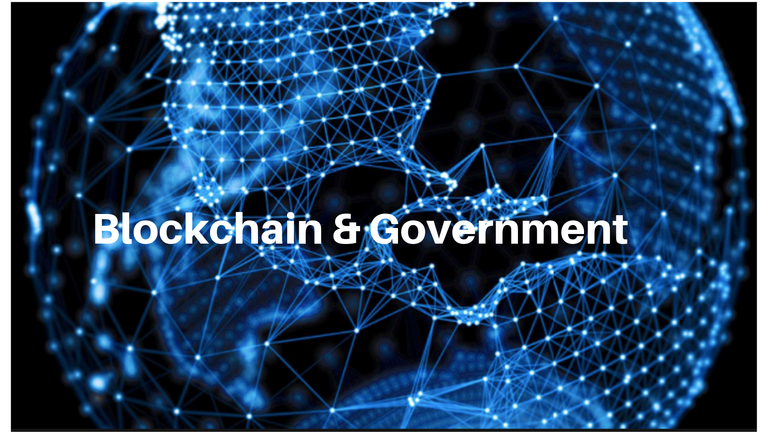
Blockchain is a digital and decentralized ledger used for recording transactions across multiple computers.
The excitement around blockchain technology has been building since the private agencies begin testing it for payments, identity management, securing data, and supply chain management. Blockchain technology can change the way governments operate, leading to an increase in data transparency and efficiency.
According to a survey held by IBM in 2016, nine out of ten governments plan to use blockchain technology for financial transactions and asset management. The governments of some countries have already been using blockchain to facilitate a variety of purposes.
Estonia has been testing blockchain technology since it was in its beginning stage in 2008. The country implemented the technology in its registries like national health, legislative, security, judicial, and commercial systems. Other states like Dubai and India are testing the technology for implementation in the future, preferably by 2020.
Dubai is likely to become the first blockchain powered country by the year 2020. It is a holiday destination where millions of tourists visit every year for vacation. The government processes 100 million documents every year related to tourism. They are likely to use blockchain to streamline the process.
Blockchain can disrupt the contract management that is the intersection of the public and private sector. There are many areas in which governments can benefit from using blockchain technology.
Citizen services
There are several services, such as voting, tax collection, and land registration, that highly depend on identity management. The use of blockchain technology will eliminate the need of the third parties for verification of identities and transactions. Governments can shift the business licenses, vehicle registrations, property titles, and other vital records to the blockchain.
Regulatory compliance
Blockchain can reduce the cost, time, and risk of enforcing regulatory compliance in a country. Many countries in the US are focusing on blockchain technology and have ranked regulatory compliance on the top in terms of blockchain benefits. Blockchain offers a transparent method to assure timelessness and reduce the cost of managing contracts.
Identity Management
According to a United Nations conference held in June 2017, around 1.1 billion people across the world don’t have a legal identity or proof of birth. Such people cannot use banking and government services or own a property.
Blockchain can compile multiple data sources securely and validate the identity of citizens of a country in the absence of traditional ID proofs. The US homeland security department and postal services are researching on the ability of blockchain to establish a secure system for identity management.
Contract management
Blockchain technology can also be useful for contract management. It can eliminate such issues as failures to meet deadlines or complete a task. Transparency resulting from managing contracts on blockchain can improve the management of performance. In addition to providing a faster and more efficient response to problems, this process can create a system that reliably tracks vendor performance. Smart contracts can penalize the subcontractors with repeated violations automatically.
Protection of sensitive data
There are multiple cases of breaches of personal and confidential data in today’s digital world. In the 2017 Equifax data breach, the complete names, birthdates, addresses, driving licenses and social security numbers of 143 million US citizens were exposed to hackers.
In another event of a security breach in 2015, the records of 21.5 million US government employees were stolen from the database of US Office of Personnel Management. As the government keeps the records of all the citizens, hackers target them for data breaches.
However, governments can prevent security breaches by deploying the blockchain data structures. These data structures can strengthen network security by eliminating the risk of a single point of failure and can make security breaches tougher than ever.
Reduce Costs
Government bodies must fulfill their mission with the management of scarce resources responsibly. For governments going through a tight budget, blockchain may be the required solution. Implementing blockchain solutions can reduce redundancy, simplify operations, reduce audit burden, increase security, and ensure safety and integrity of data.
For example, the GSA (General Services Administration) fast lane process can manage the proposals coming from vendors. The GSA Fastlane system takes 40 days for processing the incoming projects. However, GSA hopes that implementing a blockchain solution can reduce the processing time to 10 days. According to the FED Tech magazine, blockchain solutions can reduce the direct costs to analyze incoming proposals up to 80 percent.
Improve Efficiency
Considering the challenge of the federal government with reconciling of intra-governmental transfers, blockchain solutions can help improve efficiency in many ways. There are trillions of dollars in the federal budget as unreconciled funds. The process to reconcile these funds is expensive, and it can create the uncertainty of budget. A blockchain based payment and accounting system can offer a permanent audit trail to enable faster reconciliation.
To conclude,
Blockchain is a new technology with multiple possibilities for governments, who need to identify the challenges before using blockchain and develop corresponding solutions to the problems. With the developments in blockchain, we can expect its use in new and unforeseen areas for the governments of countries across the world. It can help governments improve the trust, efficiency, and security of their databases and other processes to make them secure and convenient than ever.
If you find my response useful - do not hesitate to visit my BLOG